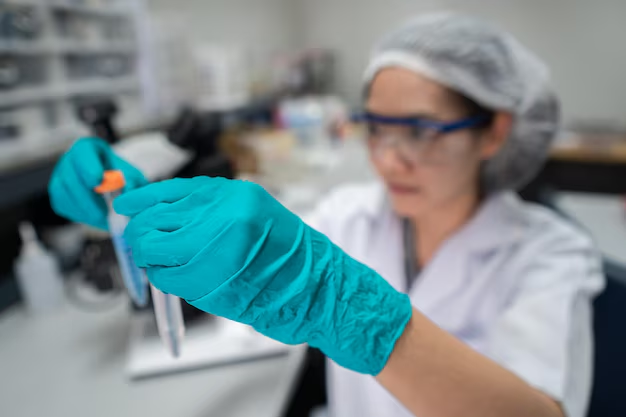Central Sterile Processing Technician Career Guide | Education, Salary, and Career Outlook
In the medical field, hygiene and sterilization are crucial in providing safe and effective patient care. Among the unsung heroes ensuring these standards are met are Central Sterile Processing Technicians. This profession involves preparing, sterilizing, assembling, storing, and delivering medical instruments and supplies to hospitals and surgical centers. Their role is indispensable, as they maintain the cleanliness and functionality of medical tools that healthcare professionals rely on during procedures. This article provides an in-depth guide to becoming a Central Sterile Processing Technician, exploring education paths, required skills, salary expectations, job outlook, and more.
Education and Training
To start a career as a Central Sterile Processing Technician, specific education and training are essential.
High School Preparation
While a high school diploma or GED is the minimum requirement for entry into this career, taking courses in biology, health, and chemistry can provide a foundational understanding of the tasks you'll encounter. Exposure to these subjects helps nurture the critical thinking and problem-solving skills necessary for success in the field.
Degrees and Certifications
A specialized degree is not required for this role; however, obtaining certification significantly boosts employment prospects and demonstrates a commitment to professionalism.
Required Certifications
- Certified Registered Central Service Technician (CRCST): Administered by the International Association of Healthcare Central Service Materiel Management (IAHCSMM), this certification covers essential topics like cleaning disinfection, sterilization, and healthcare safety.
- Certified Sterile Processing and Distribution Technician (CSPDT): Offered by the Certification Board for Sterile Processing and Distribution, Inc. (CBSPD), this certification validates proficiency in sterile processing and distribution functions.
Specialized Training Programs
Training typically involves completing a certificate program in sterile processing technology. These programs can be found at community colleges or vocational schools and often last between 10 to 24 weeks.
Licensing and Board Exams
Most states do not require a formal license to work as a Central Sterile Processing Technician. However, certification is highly recommended, and some employers insist on it.
Continuing Education
To maintain certification, technicians must engage in continuing education, which ensures they keep abreast of the latest sterilization techniques and standards. Options for continuing education include workshops, seminars, and online courses.
| Step | Details |
|---|---|
| High School Courses | Biology, Health, Chemistry |
| Certification | CRCST, CSPDT |
| Training Programs | Sterile Processing Technology Courses |
| Continuing Education | Workshops, Seminars, Online Courses |
Example Institutions and Programs
- Ivy Tech Community College – Provides a detailed sterile processing technology program.
- New York Medical Career Training Center – Offers a comprehensive course covering all fundamental aspects of the role.
- Aims Community College – Offers training focused on practical and theoretical aspects of sterile processing.
Skills and Qualities Needed
To be a successful Central Sterile Processing Technician, certain skills and qualities are indispensable:
Hard Skills
- Knowledge of Sterilization Techniques: Understanding various sterilization procedures and their applications is critical.
- Attention to Detail: Ensures the correct assembly and sterilization of surgical instruments.
- Inventory Management: Required to track instrument usage and availability.
Soft Skills
- Communication Skills: Essential for effective interaction with hospital staff and administrators.
- Problem-Solving Abilities: Helps resolve issues related to equipment malfunctions or inventory shortages.
- Time Management: Necessary to prioritize tasks and ensure timely availability of sterilized instruments.
Application of Skills
In practice, these skills translate into daily responsibilities, such as correctly assembling surgical toolkits, maintaining sterile environments, and efficiently restocking supplies. Effective communication assists in coordinating with healthcare teams, while problem-solving skills allow swift handling of unforeseen issues like sterilization machine breakdowns.
Salary
Average Salary in the U.S.
Central Sterile Processing Technicians earn a median annual wage of approximately $39,000 according to recent data. However, salaries can fluctuate based on various factors.
Salary Ranges
| Career Stage | Average Annual Salary |
|---|---|
| Entry Level | $32,000 - $36,000 |
| Mid-Level | $36,000 - $42,000 |
| Experienced | $42,000 - $50,000 |
Factors Affecting Salary
- Location: Urban areas tend to offer higher wages due to a higher cost of living and increased demand.
- Education Level: Advanced certification can lead to higher pay.
- Specialization: Technicians who specialize in complex sterilization processes may command higher salaries.
Career Outlook and Job Help
Job Growth Data
According to the U.S. Bureau of Labor Statistics, employment for medical equipment preparers, including Central Sterile Processing Technicians, is projected to grow by 14% from 2022 to 2032. This growth is faster than the average for all occupations, driven by the increased demand for medical procedures and enhanced healthcare services.
Common Employment Settings
- Hospitals
- Surgical Centers
- Outpatient Clinics
- Dental Offices
Career Advancement Opportunities
With experience and additional certifications, Central Sterile Processing Technicians can progress to supervisory roles or specialize further in areas like endoscopy or instrument repair.
Job Seeking Tips
- Resume Building: Highlight certifications, relevant coursework, and practical experience.
- Networking: Engage with professional organizations like IAHCSMM for job leads and networking opportunities.
- Certification Renewals: Stay current with required renewals to maintain employability and advancement potential.
Final Insights
Pursuing a career as a Central Sterile Processing Technician offers an opportunity to be at the forefront of patient safety and healthcare excellence. As a vital part of the medical team, technicians ensure that lifesaving procedures are conducted with sterile tools, minimizing infection risks.
For students and career changers considering this path, the field promises growth, stability, and the unique satisfaction of contributing to safeguarding patient health. With a manageable entry requirement and the chance for career development, sterile processing offers a rewarding alternative within healthcare.

